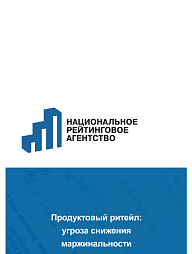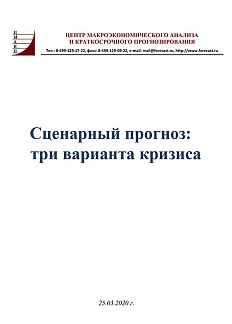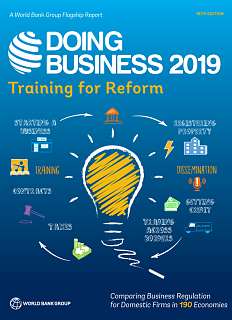Experts from the National Rating Agency presented an analytical review, which reflects the real threats to reduce marginality for food retailing sector. Decrease in real household earnings will lead to slowdown of the market growth rate in 2020. Leading offline companies are rapidly forming an e-commerce system, opening darkstores, increasing their own delivery service and expanding cooperation with logistics operators. The decline in offline stores popularity will lead to a drop in revenue per square meter. In summer, due to restrictions on traveling and an increase in risks for travelers, the number of people who will physically stay in Russia and consume goods and services inside country will be greater than in previous years.
Roscongress Foundation analysts highlighted the main theses of this research, accompanying each of them with suitable fragments of video broadcasts of panel discussions held as part of business programs of the key events hosted by the Foundation.
The self-isolation regime has accelerated market trends such as the rise in popularity of online stores and the decline in the attractiveness of hypermarkets.
The companies’ data showed that the self-isolation regime led to an increase in demand for online orders and delivery. The need to service the increased number of online orders has led to an increase in the number of couriers and the number of vehicles for retailers. The increase of online trading popularity has led to an increase in the number of darkstores — premises in which orders are collected for delivery.
According to the National Rating Agency (NRA) calculations, in context of the self-isolation regime, convenience stores have become the main place for offline shopping. At the same time, buyers decreased the number of visits to stores when their basket increased. Rush demand in March affected hypermarkets to a lesser extent. For example, Lenta supermarkets increased traffic in March 2020 by 6% compared to March last year, while the popularity of hypermarkets fell by 0.3%.
Decrease in hypermarkets attractiveness reflects the dynamics of retailers’ stock quotes. Compared to the Moscow Exchange index from the last maximum in January 2020, shares of X5 Retail Group and Magnit showed better movement than the market, while dynamics of the Lenta and O’KEY (mostly hypermarkets) shares, in ruble terms worse than the Moscow Exchange index.
The tourism market downturn will support the industry. Most of the buyers who usually travel abroad in summer and spend money there will remain in Russia and will enter the retailers’ active consumer base this summer.
The spread of COVID-19 provoked a sharp decline in the tourism market due to the closure of borders and the introduction of various restrictive measures in regions. Even if they are canceled soon, the summer period of this year will show a multiple decrease in the number of trips, incl. due to concerns about travel safety. This will lead to the fact that some of the buyers who were abroad in past years will enter the retailers’ active consumer base this summer. Thus, the tourism market reduction may lead to an increase in revenue in the third quarter, which is usually lower or close to the first quarter.
The spread of COVID-19 will have a significant impact on retailers’ marginality. In this regard, many large retail networks have already adjusted their plans to open new stores and renovate existing ones.
NRA calculations show that a rush demand has forced retailers to increase their stocks.
The offline format results are influenced by stricter sanitary standards and reduced traffic in places where previously there was a lot of people. A new habit of buying remotely is likely to remain with some buyers even after the restrictions are lifted.
X5 Retail Group reduced its plan to open 2,000 new stores in 2020 by 20-25%. In addition, projects to modernize operating outlets in regions were adjusted: only 40 stores will be renovated instead of 1,300. Magnit announced the adjustment of projects for opening and redesigning stores downwards.
The main limitation to the food retailing market growth this year will be the reduction in real household earnings. In addition, a high level of market competition is recorded, which leads to low marginality in the industry. Firms as a whole do not feel liquidity problems in any way, accounts payable turnover is on average 10 times higher than accounts receivable turnover. At the same time, the spread of COVID-19 leads to an increase in procurement prices due to increased costs from producers of goods in connection with the introduction of new sanitary standards, violation of supply chains and withdrawal of some companies from the market. Against the background of real household earnings declining, retailers will need to reduce a trade mark-up.
See other materials posted in special sections of the Roscongress COVID-19 Information and Analytical System , StayHomeEconomy, Entrepreneurship and Modern Consumer, dedicated to the coronavirus response, possible ways to stabilize the economy in the pandemic, as well as trends in modern consumption.






